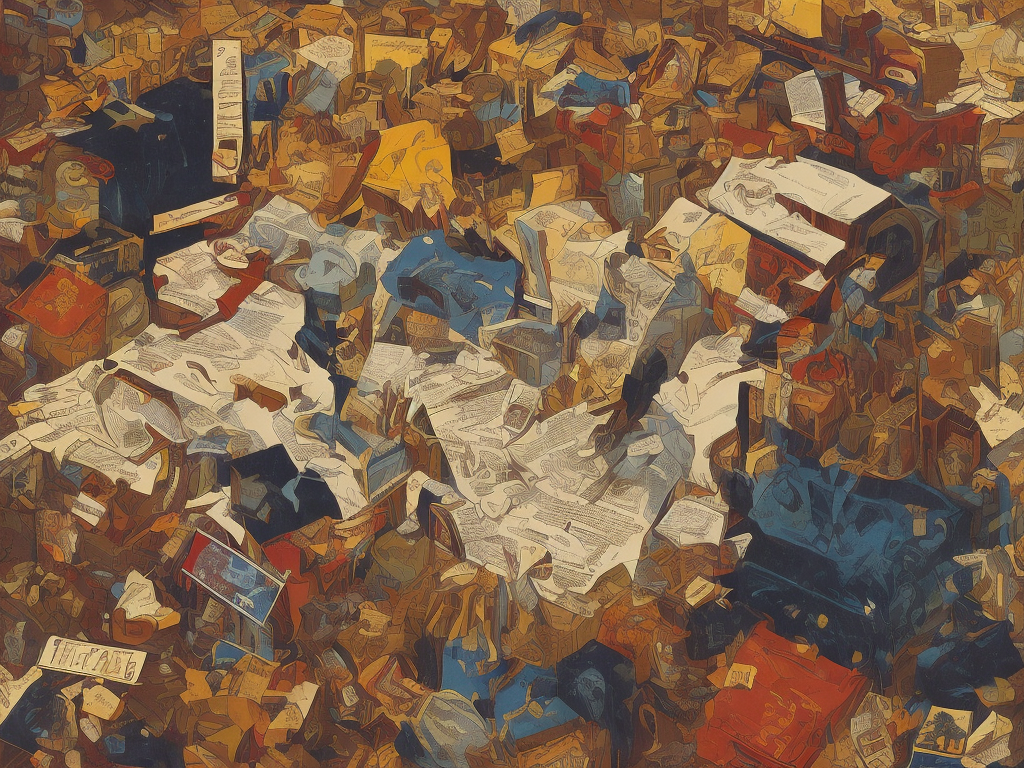
What Is The Difference Between Conventional And Modern Literary Genres
Literary genres are classifications used to categorize works of literature based on their shared characteristics. These classifications provide readers and writers with a framework to understand and analyze different types of literature. Over time, literary genres have evolved, resulting in the distinction between conventional and modern genres. In this article, we will explore the differences between these two categories.
Conventional literary genres refer to those that have been established and recognized for a considerable period. They embody enduring themes, motifs, and stylistic techniques that have stood the test of time. Some popular examples of conventional genres include poetry, drama, and prose.
Poetry is a form of literary expression characterized by its structured use of rhythm, meter, and rhyme. It often encapsulates emotions and ideas through the use of vivid imagery and figurative language. Traditional poetic forms such as sonnets, haikus, and ballads fall under this genre. Classic poets like William Shakespeare, Emily Dickinson, and Robert Frost have made significant contributions to the world of conventional poetry.
Drama, on the other hand, is a genre that relies on dialogue and performance to tell a story. It originated in ancient Greece and has been a staple of theater ever since. Tragedy and comedy are two major forms of drama. Tragedy explores themes of suffering and the human condition, while comedy focuses on humor and lightheartedness. Famous playwrights like William Shakespeare, Henrik Ibsen, and Tennessee Williams are recognized for their contributions to conventional drama.
Prose encompasses a wide range of literary works that are commonly written in paragraph form. It includes novels, short stories, essays, and biographies. Unlike poetry and drama, prose allows for more freedom in terms of structure and style. Conventional prose often adheres to the rules of grammar and traditional narrative techniques. Authors like Jane Austen, Charles Dickens, and Ernest Hemingway are known for their mastery of conventional prose.
While conventional genres have played a vital role in shaping the literary landscape, the emergence of modern literary genres has revolutionized the way we perceive and appreciate literature. Modern genres are characterized by their departure from traditional conventions and their incorporation of experimental elements. These genres challenge conventional norms and explore new forms of expression.
One of the most prominent modern genres is magical realism. Magical realism blends realism with fantastical elements to create a narrative that blurs the line between the ordinary and the extraordinary. This genre, popularized by writers like Gabriel Garcia Marquez and Isabel Allende, often combines intricate storytelling with supernatural occurrences. It invites readers to question the boundaries between reality and imagination, offering a unique and thought-provoking reading experience.
Another modern genre is postmodernism, which emerged in the mid-20th century as a response to the disillusionment and skepticism brought about by World War II. Postmodern literature embraces fragmentation, intertextuality, and self-reflexivity. It challenges traditional notions of authorship and narrative structure, often breaking down established boundaries between fiction and reality. Prominent postmodern authors include Thomas Pynchon, Italo Calvino, and Jorge Luis Borges.
Science fiction is another modern genre that explores the impact of science and technology on society. It often presents a speculative vision of the future and raises philosophical questions about the nature of humanity. Science fiction authors like Isaac Asimov, Arthur C. Clarke, and Philip K. Dick have crafted captivating narratives that push the boundaries of the imagination while reflecting on the human condition.
One more notable modern genre is dystopian fiction. Dystopian literature presents a futuristic society characterized by oppression, surveillance, and a loss of individual freedoms. It often serves as a cautionary tale, reflecting contemporary anxieties and warning against potential dangers. George Orwell's "1984" and Aldous Huxley's "Brave New World" are iconic examples of dystopian fiction that have left a lasting impact on readers worldwide.
In summary, conventional and modern literary genres differ in terms of their established traditions and stylistic features. Conventional genres such as poetry, drama, and prose encompass long-standing forms of literary expression. These genres have stood the test of time and continue to shape our understanding of literature. On the other hand, modern genres like magical realism, postmodernism, science fiction, and dystopian fiction depart from tradition by incorporating experimental elements and challenging conventional norms. These genres offer fresh perspectives and invite readers to engage with literature in exciting new ways. Whether one chooses to delve into the traditional realms of conventional genres or explore the uncharted territories of modern genres, there is always something captivating and enriching waiting to be discovered.
 Self-Instruct
Self-Instruct